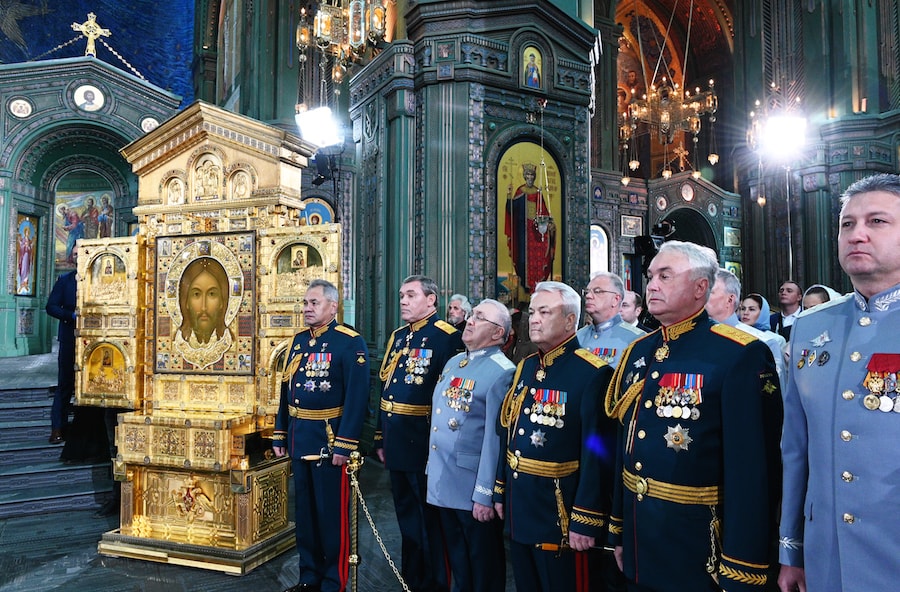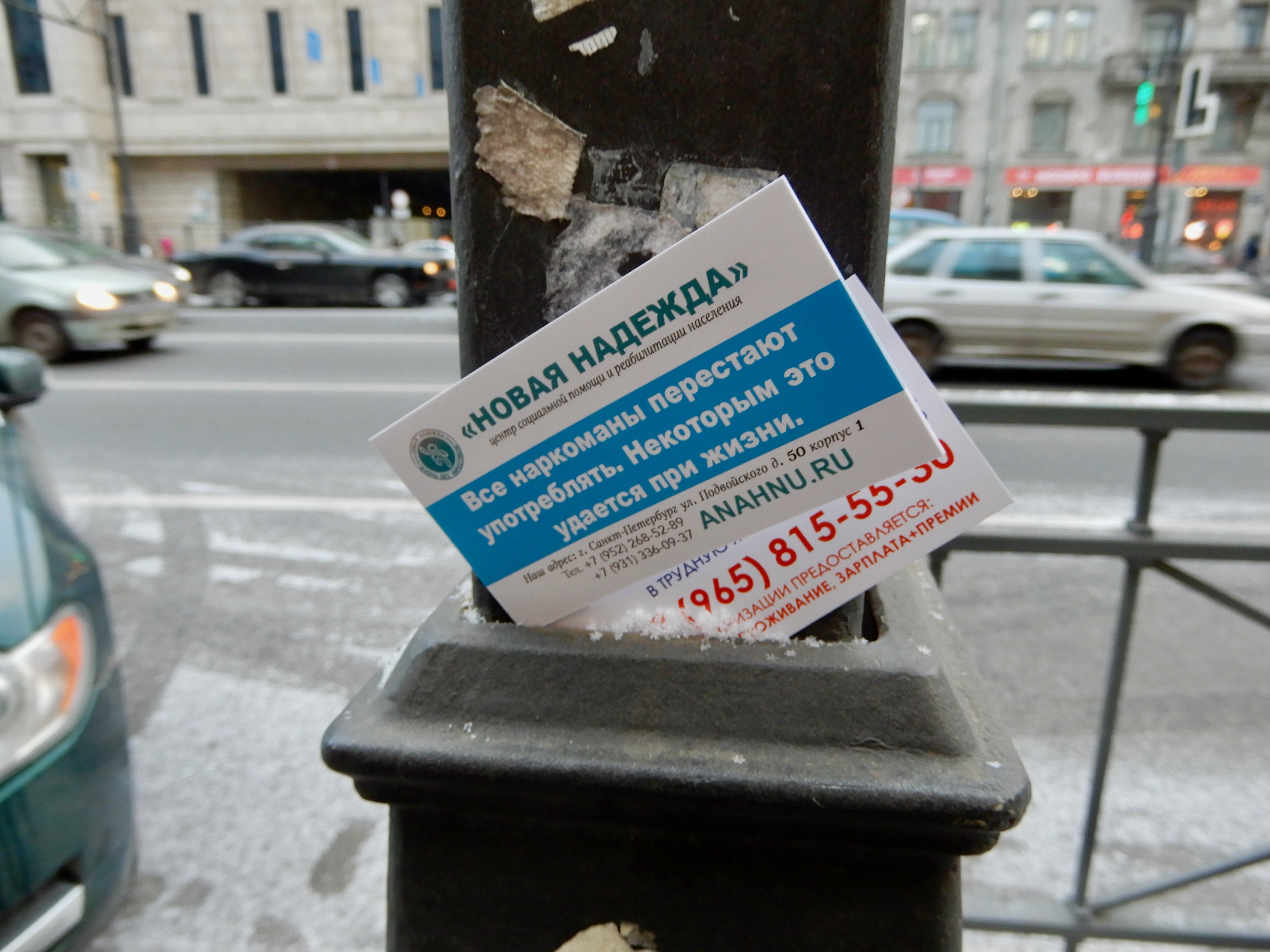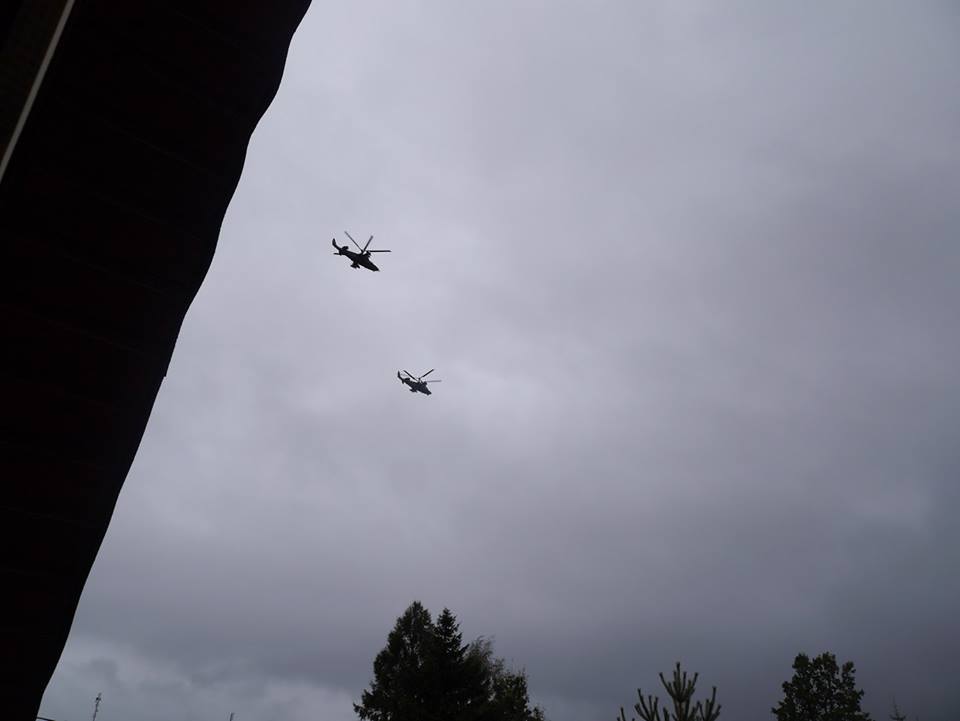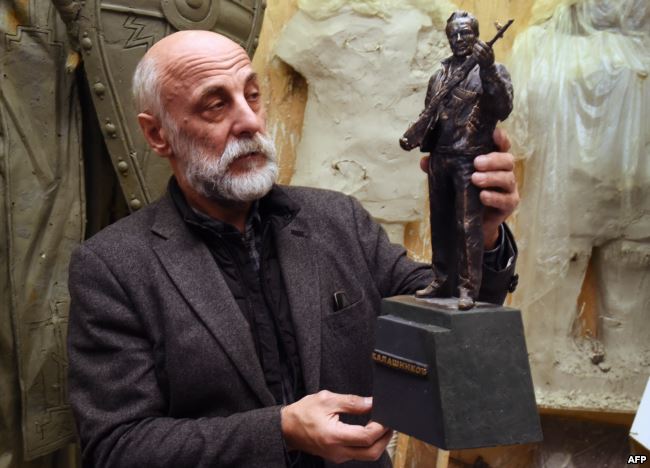Veterans of the special military operation and combat veterans will be able to teach the new subject “Fundamentals of the Security and Defense of the Motherland” in schools after undergoing retraining at the State University of Education (GOOP), according to Education Minister Sergei Kravtsov, who was speaking at a plenary session during the Russian national pedagogical forum “Memory Is Sacred.”
“A center for retraining veterans of the special military operation and combat veterans as teachers was created this year at GOOP to implement a new subject area with a priority on practical training in the new subject ‘Fundamentals of the Security and Defense of the Motherland,'” Kravtsov said.

According to the minister, the basic military training module would be enhanced in this subject, which is being implemented as part of the “Fundamentals of Health and Safety” curriculum. The new subject would be trialed this year, and it would be taught in schools beginning in the next academic year, he added.
On June 30, Kravtsov said that, as part of the subject, schoolchildren would gain knowledge of the “role the defense of the country plays in its peaceful socio-economic development and the current complexion of our our Armed Forces.” Schoolchildren would be introduced to concepts such as “military duty” and “military service.” The minister emphasized that the load on schoolchildren would not increase—the number of classroom hours would remain the same.
GOOP’s acting rector Irina Kokoyeva told Vedomosti that the Apex Center for Military-Patriotic Education had been operating at the university since September 1. One of the center’s focus areas is the professional development and retraining of special operation veterans as coordinators of military-patriotic clubs and teachers of the subject “Fundamentals of the Security and Defense of the Motherland.” “We plan to recruit a pilot group in this focus area. Information about the conditions and criteria for recruitment will be posted on the university’s official website in the near future,” she added.
Tuition for veterans of the special operation will be free, Olga Kazakova, head of the State Duma’s education committee, told Vedomosti. According to her, the program at the training center will help veterans who don’t have the requisite knowledge in the fields of child psychology or pedagogy. The deputy also recalled that it was the education committee’s initiative to establish the center. “Together with the State Duma’s defense committee, we are forming a working group on the teaching of this subject. And, of course, we will be directly involved in the process of preparing the curriculum, teachers, and the facilities and resources for these lessons,” she added.
All people, regardless of whether they were involved in the special operation, must undergo special psychological tests to be cleared to work with children, says clinical psychologist Ilya Gavin. “It is good practice to check any category of people working with children. People come in all shapes and sizes, including those with PTSD [post-traumatic stress disorder],” the expert said.
Per the Health Ministry’s standing order No. 342n, all teaching staff are required, as of 1 September 2022, to undergo a psychiatric examination to be cleared to work with children. Previously, teachers were only required to undergo an annual medical examination, as well as an examination when applying for a job. Prior to 2022, employees of educational institutions underwent psychiatric examination at least once every five years.
According to Gavin, the time it takes to recover from PTSD and return to everyday life directly depends on the severity of the disorder, because it can also be accompanied by the emergence of addictions. “The rehabilitation period can vary from three months to a year. The PTSD treatment protocol also includes ten to fifteen sessions of work with a psychologist once a week,” Gavin concluded.
Source: Anastasia Mayer, “Duma readying retraining program for special operation veterans to teach in schools: soldiers will gain knowledge in child psychology and pedagogy,” Vedomosti, 7 September 2023. Translated by the Russian Reader
GENEVA, June 15 (Reuters) – A group of U.N. experts said on Thursday they had written to Moscow raising concerns about the use of torture by Russian military forces on Ukrainian civilians and prisoners of war.
The U.N. experts said in a statement the torture included electric shocks, hoodings and mock executions and had been carried out to extract intelligence, force confessions or in response to alleged support for Ukraine’s forces.
It had resulted in damage to internal organs, cracked bones and fractures, strokes and psychological traumas, they said.
A spokesperson for Russia’s diplomatic mission in Geneva did not immediately respond to a request for comment. Moscow has previously denied torturing or mistreating prisoners of war and says it does not deliberately target civilians in Ukraine.
While torture allegations have previously been levelled against both sides in the 15-month conflict, the team of U.N. independent experts said Russian forces’ methods may be “state-endorsed”.
The consistency and methods of alleged torture suggested “a level of coordination, planning and organisation, as well as the direct authorisation, deliberate policy or official tolerance from superior authorities”, according to U.N. Special Rapporteur on Torture Alice Jill Edwards, who sent the letter on 12 June alongside several other independent experts.
“Obeying a superior order or policy direction cannot be invoked as justification for torture, and any individual involved should be promptly investigated and prosecuted by independent authorities,” she said.
Under the U.N. system, a government has 60 days to give a formal response.
Source: “UN experts raise ‘widespread’ torture concerns with Russia,” Reuters, 15 June 2023


 Smoke rises after an airstrike hits a city center in Syria’s northwestern Idlib Province on March 13, 2019. Photo by Ahmet Rehhal. Courtesy of Anadolu Agency and the
Smoke rises after an airstrike hits a city center in Syria’s northwestern Idlib Province on March 13, 2019. Photo by Ahmet Rehhal. Courtesy of Anadolu Agency and the  “New Hope. All drug addicts quit using. Some manage to do it while alive.” Photo by the Russian Reader
“New Hope. All drug addicts quit using. Some manage to do it while alive.” Photo by the Russian Reader The Wall, one of the Russian National Guard’s new toys for crushing popular unrest. Photo courtesy of
The Wall, one of the Russian National Guard’s new toys for crushing popular unrest. Photo courtesy of 



 The 7.5-meter tall statue to Mikhail Kalashnikov, which stands on a northern intersection of the Garden Ring around central Moscow.
The 7.5-meter tall statue to Mikhail Kalashnikov, which stands on a northern intersection of the Garden Ring around central Moscow. Russian sculptor Salavat Shcherbakov presents a model for a monument to Mikhail Kalashnikov, Russian designer of the AK-47 assault rifle, at his workshop in Moscow on November 10, 2016.
Russian sculptor Salavat Shcherbakov presents a model for a monument to Mikhail Kalashnikov, Russian designer of the AK-47 assault rifle, at his workshop in Moscow on November 10, 2016. Mikhail Kalashnikov with one of his fabled assault rifles in 2006.
Mikhail Kalashnikov with one of his fabled assault rifles in 2006.


